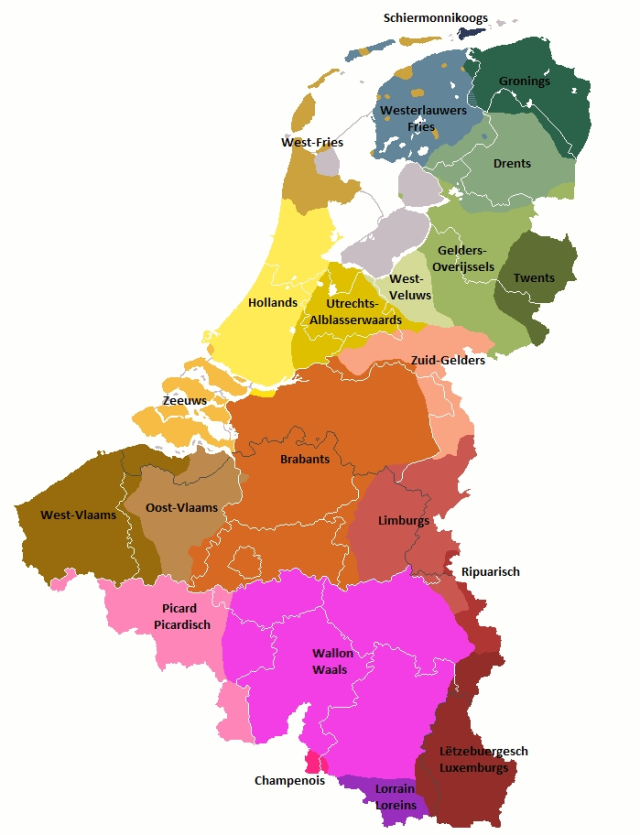Fun fact, despite being more closely related, German is considered somewhat harder to learn for English speakers than Romance languages (Spanish, French, Italian, Romanian). Due to historical events, conquests, migration, etc, more than half of our vocabulary derives from Latin (and a good chunk of that is from French).
Cool Guides
Rules for Posting Guides on Our Community
1. Defining a Guide Guides are comprehensive reference materials, how-tos, or comparison tables. A guide must be well-organized both in content and layout. Information should be easily accessible without unnecessary navigation. Guides can include flowcharts, step-by-step instructions, or visual references that compare different elements side by side.
2. Infographic Guidelines Infographics are permitted if they are educational and informative. They should aim to convey complex information visually and clearly. However, infographics that primarily serve as visual essays without structured guidance will be subject to removal.
3. Grey Area Moderators may use discretion when deciding to remove posts. If in doubt, message us or use downvotes for content you find inappropriate.
4. Source Attribution If you know the original source of a guide, share it in the comments to credit the creators.
5. Diverse Content To keep our community engaging, avoid saturating the feed with similar topics. Excessive posts on a single topic may be moderated to maintain diversity.
6. Verify in Comments Always check the comments for additional insights or corrections. Moderators rely on community expertise for accuracy.
Community Guidelines
-
Direct Image Links Only Only direct links to .png, .jpg, and .jpeg image formats are permitted.
-
Educational Infographics Only Infographics must aim to educate and inform with structured content. Purely narrative or non-informative infographics may be removed.
-
Serious Guides Only Nonserious or comedy-based guides will be removed.
-
No Harmful Content Guides promoting dangerous or harmful activities/materials will be removed. This includes content intended to cause harm to others.
By following these rules, we can maintain a diverse and informative community. If you have any questions or concerns, feel free to reach out to the moderators. Thank you for contributing responsibly!
OK, maybe I'm wrong, but that seems to be a MASSIVE miscomprehension of the relationship between West Germanic and olde French.
In fact, modern German is arguably EASIER to learn for English-speakers due to all the common grammar and sentence structure.
I'm just going by the FSI rankings. Romance languages are "Category 1" necessitating 600-750 class hours. German is "Category 2" needing 900 hours.
I think vocabulary is more important anyhow, if you know the words you can piece together the meaning even if it's in a strange order. If you don't, the order doesn't really matter at all.
Old world except for most of the world
Its from a post-apocalyptic comic taking place somewhere in Scandinavia.
Almost half of them are spoken in single country India.
What is "year 0"?
This is from an online comic called Stand Still, Stay Silent. Year 0 is the year, well, the year everything changed for the Nordic countries.
It's a gorgeous story, for any who might be interested!
Ahh, yes, the Albanian Albanian branch is my personal favourite.
Fun Fact: I believe that one running hypothesis relating to the origin of the Indo-European Languages traces its lineage back to the Yamnaya culture. 'Yamnaya' in Russian ('Я́мная') translates to "relating to pits", because some of the most noteable artifacts of this culture are their pit burial sites.
I'm still reading about them atm.
So this is a huge pet peeve of mine: Flemish is not a separate language. It refers to a region inside of Belgium where Dutch is the official language. The Dutch and the Flemish share the same standard language.
I know dialects exist, and those can be considered a language on their own, but there is no unified Flemish dialect. West-Flemish for example is distinctly different from other dialects spoken in Flanders like Brabandic or Limburgish, and variants of Limburgish and Brabandic dialects are spoken in large areas of the Netherlands as well. So it doesn't make sense to create a distinction between "Dutch" and "Flemish".

The differences are on the level of American English vs. Australian English vs. British English. Or Austrian German vs. Swiss German vs. Bavarian German vs. North German ... So if those are not singled out, it doesn't make sense to separate Flemish from Dutch.
